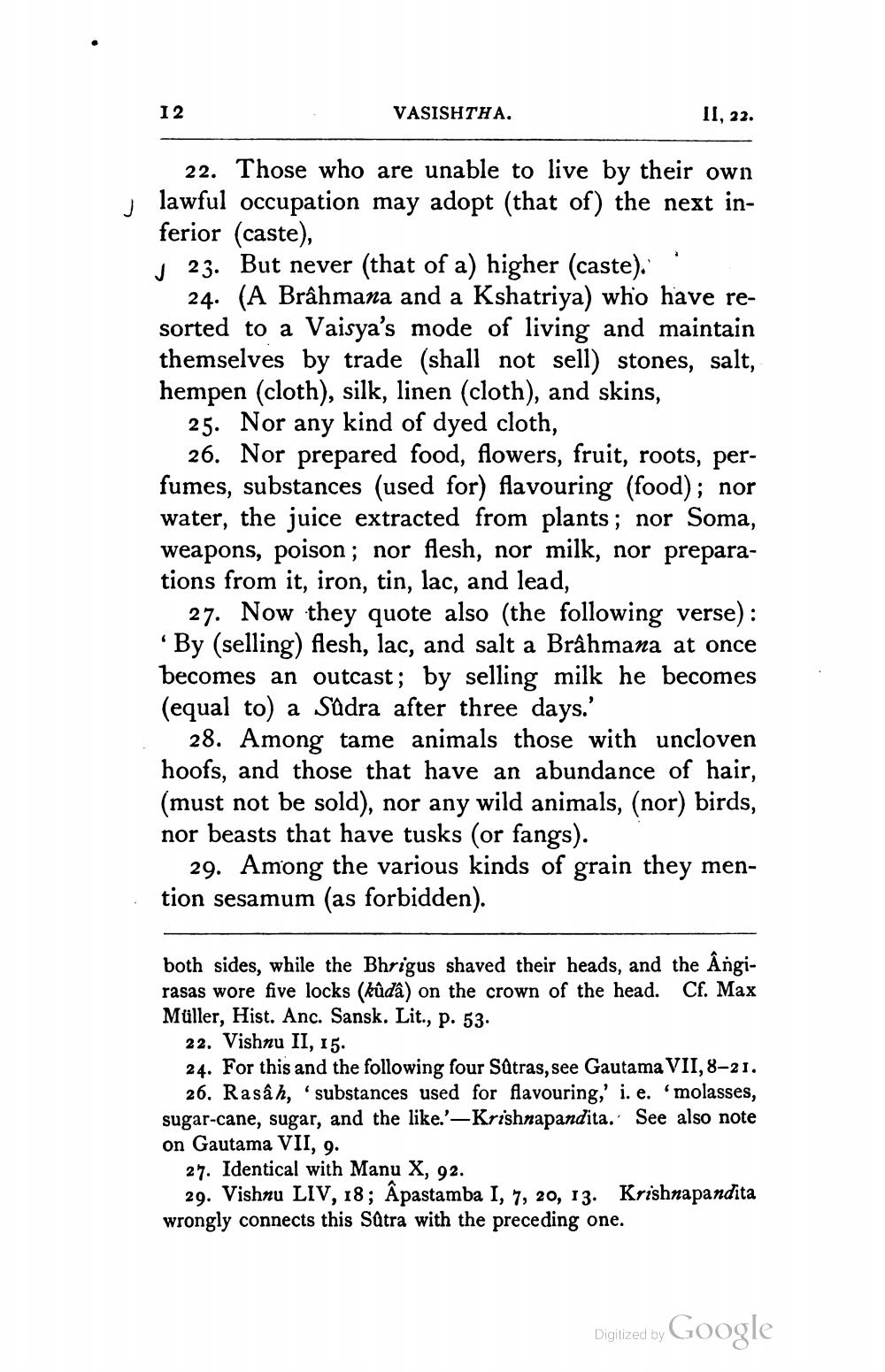________________
12
VASISHTHA.
II, 22.
22. Those who are unable to live by their own lawful occupation may adopt (that of) the next inferior (caste),
23. But never (that of a) higher (caste).
24. (A Brâhmana and a Kshatriya) who have resorted to a Vaisya's mode of living and maintain themselves by trade (shall not sell) stones, salt, hempen (cloth), silk, linen (cloth), and skins,
25. Nor any kind of dyed cloth,
26. Nor prepared food, flowers, fruit, roots, perfumes, substances (used for) flavouring (food); nor water, the juice extracted from plants; nor Soma, weapons, poison; nor flesh, nor milk, nor preparations from it, iron, tin, lac, and lead,
27. Now they quote also (the following verse): By (selling) flesh, lac, and salt a Brâhmana at once becomes an outcast; by selling milk he becomes (equal to) a Sudra after three days.'
28. Among tame animals those with uncloven hoofs, and those that have an abundance of hair, (must not be sold), nor any wild animals, (nor) birds, nor beasts that have tusks (or fangs).
29. Among the various kinds of grain they mention sesamum (as forbidden).
both sides, while the Bhrigus shaved their heads, and the Ângirasas wore five locks (kûdâ) on the crown of the head. Cf. Max Müller, Hist. Anc. Sansk. Lit., p. 53.
22. Vishnu II, 15. 24. For this and the following four Satras, see Gautama VII, 8-21.
26. Rasah, substances used for flavouring,' i. e. 'molasses, sugar-cane, sugar, and the like.'—Krishnapandita. See also note on Gautama VII, 9.
27. Identical with Manu X, 92.
29. Vishnu LIV, 18; Âpastamba I, 7, 20, 13. Krishnapandita wrongly connects this Satra with the preceding one.
Digilized by Google




